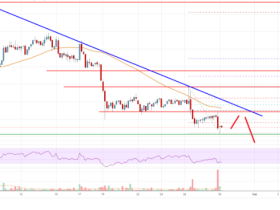The Russian parliament has reportedly adopted a crypto change to the country’s Tax Code. Local entities stand to benefit more from the modification than their international competitors.
The most recent tax rule exempts software platform issuers from taxation. Now, the nation can consider legislating other sectors of the cryptocurrency economy.
The Russian Duma Implements A Crypto Tax Law
The State Duma has reportedly accepted a bill to modify the Russian Tax Code. This legislation would permit taxation of transactions with DFAs (digital financial assets).
In addition, the bill underwent a formal approval before being adopted. Russia joins a number of other nations that get crypto tax money.
Currently, DFA refers to all digital currencies in Russia. Nonetheless, a new law will increase the definitions of digital assets starting this fall.
In addition, the proposed policy covers several facets of the cryptocurrency tax. Forklog, a news source for cryptocurrencies, reported that these sites would not be subject to the bitcoin tax.
They consist of platforms that regulate, issue, and log DFA transactions. This indicates that issuers of digital assets will not be taxed.
Previously, the tax rate for cryptocurrency transactions was 20%. However, the statute was modified to include separate tax rates for domestic and foreign businesses.
Recent Legislation Promotes Russian-Based Businesses.
Legal organizations with cryptocurrency in Russia will indeed be taxed 13% of their income. Nevertheless, european companies will be subject to a 15% higher tax rate.
This demonstrates that the legislation favors local firms. It will allow them to advance more rapidly than their overseas competitors.
The lower chamber of parliament initially introduced a cryptocurrency tax law to the Russian Duma in April. In May, the measure underwent its first reading in the House of Representatives.
Meanwhile, the measure was passed by the legislative financial market. During this time, a number of obstacles delayed the bill’s passage. The tax restrictions do not include private bitcoin holdings, according to experts.
Russian authorities have been attempting to control the crypto business since 2022. In February, the Finance Ministry proposed adopting crypto legislation.
However, the implementation of a policy system has been delayed. This is because of the debate around the legitimacy of cryptocurrencies such as Bitcoin.
In the meantime, the latest cryptocurrency market turmoil may drive the government to expedite crypto control. It is questionable whether Russia would tighten its crypto sector regulations.








Leave a Reply